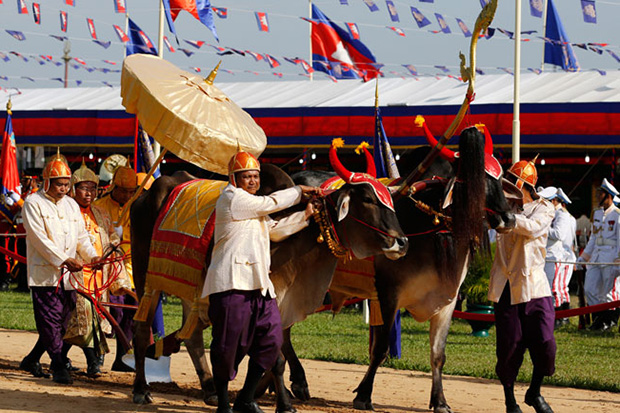
PHNOM PENH: The annual Royal Ploughing Ceremony, traditionally held in May, has been cancelled in light of the pandemic, the National Committee for Organising National and International Festivals (NCONIF) announced.
“The government has decided to cancel the celebration of this year’s Royal Ploughing Ceremony due to the ongoing pandemic and considering cancellations for the other national festivals,” the Khmer Times on Monday quoted NCONIF secretary-general Chhin Ketana as saying.
The decision follows after Kong Sam Ol, Royal Palace Minister and NCONIF head, last week sent a letter to Prime Minister Hun Sen proposing the cancellation of the event, which was set to be held in Kampong Thom province on May 10.
The ceremony is an ancient royal rite observed annually in the kingdom under the auspices of the king to announce the arrival of the rice-planting season and predict whether the coming season will be bountiful or not.
Its recent cancellation comes after the premier last week announced the cancellation of the Khmer New Year celebrations to prevent mass gatherings and mitigate coronavirus risks.
Other holidays observed in May are the International Labour Day on May 1, Visak Bochea Day (Buddhist Day) on May 6 and the birthday of King Norodom Sihamoni on May 14.
Meanwhile, Cults and Religion Ministry spokesman Seng Somony said the ministry has yet to decide whether to cancel celebration of the Visak Bochea Day or not.
“The ministry will wait for the government’s directive first and will follow suit,” said Somony.
In a Facebook post on Sunday, Hun Sen said: “The safety of the people is very important. Citizens can prevent the spread of Covid-19 by following simple methods, including the wearing of face masks or krama, regular hand-washing, social distancing and self-quarantining.”